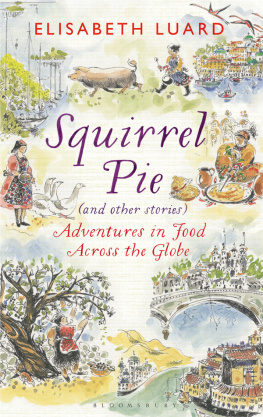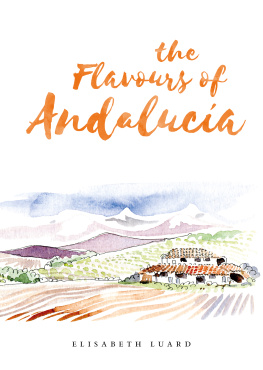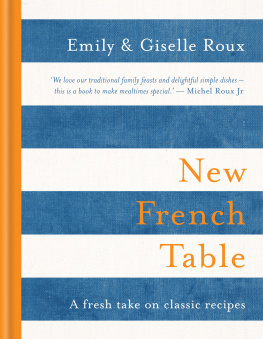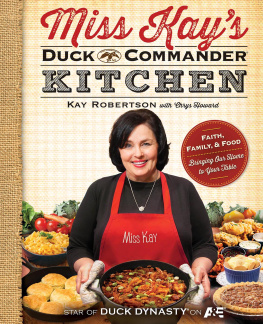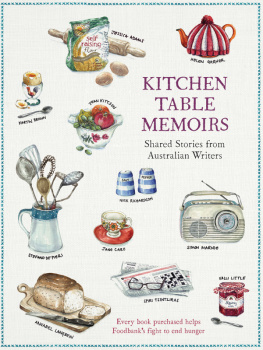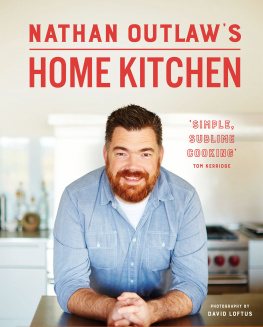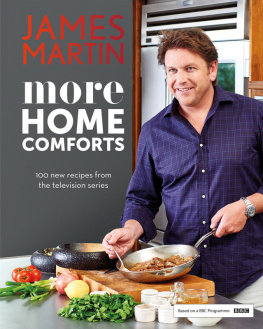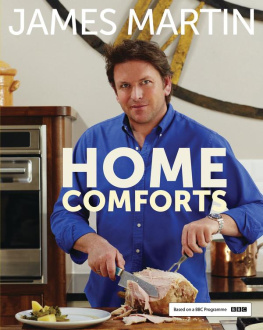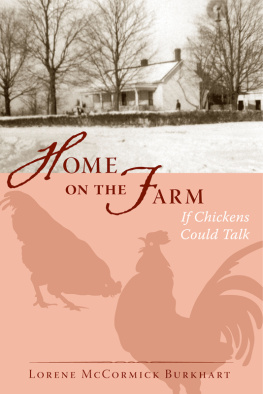ELISABETH LUARD is an award-winning food writer whose work includes European Peasant Cookery (published in the US as The Old World Kitchen, a New York Times benchmark cookbook of the twentieth century), The Food of Spain and Portugal, European Festival Food, Sacred Food and The Latin American Kitchen. She has also written a couple of doorstopper novels including Emerald (WH Smith Thumping Good Read Award), and a trio of memoirs-with-recipes including Family Life (Guild of Food Writers Book of the Year 1997), and was awarded the Glenfiddich Trophy for Food Writing in 2007. She contributes regularly to national newspapers and magazines including the Telegraph, Daily Mail, Country Living and the Oldie and is currently Director of The Oxford Symposium on Food & Cookery. Brought up in South America, Spain and France as a member of a diplomatic family, married for forty years to the late Nicholas Luard novelist and founding father of the satire movement of the 1960s she brought up their family of four children in a remote valley in Andalucia, where she developed her early career as artist and illustrator. She still travels widely, continues to use sketchbook and watercolours as a way of recording images and recipes, and now happily entertains her grandchildren in a remote farmhouse in the wilds of Wales. A Cooks Year in a Welsh Farmhouse is her most recent book.
COOKBOOKS
EUROPEAN PEASANT COOKERY
THE PRINCESS AND THE PHEASANT AND OTHER RECIPES
THE BARRICADED LARDER
EUROPEAN FESTIVAL FOOD
THE FLAVOURS OF ANDALUCIA
COUNTRY COOKING
SAFFRON AND SUNSHINE
SACRED FOOD
THE LATIN AMERICAN KITCHEN
THE FOOD OF SPAIN AND PORTUGAL
CLASSIC FRENCH COOKING
FOOD ADVENTURES
TRUFFLES
CLASSIC SPANISH COOKING
SOUP GALORE
RECIPES AND RAMBLINGS
TAPAS: CLASSIC SMALL DISHES FROM SPAIN
A COOKS YEAR IN A WELSH FARMHOUSE
MEMOIRSWITHRECIPES
STILL LIFE
MY LIFE AS A WIFE
NOVELS
EMERALD
MARGUERITE

For my beloved family my husband
Nicholas and my children, Caspar, Francesca,
Poppy and Honey.
I shall declare my hand immediately: I hold no trumps in the card-game of life. This book is no self-improvement manual. It is simply one womans account of how one family, shaped by time, place and social habit, coped with the business of reaching adulthood.
We were an unusual family only in that, as a writer, my husband Nicholas and later, I, too had the ability to earn a living in ways which did not tie us down geographically. We could choose where we lived and we moved our household often. In all other respects we were ordinary. Neither rich nor poor by the standards of western society in the second half of the twentieth century, and obliged, like most of humanity, to make our choices and cut our coat according to the cloth.
We grew up together, my children and I. In this we share the experience of every other family in every other corner of the world. It is, after all, an ordinary business, done by ordinary people. We fall into it so easily by a trick of biology, or nature, or whatever heavenly godfather or cosmic sadist, as C.S. Lewis had it in a rare moment of despair dictates the continuation of our species. No special training is needed. Joy and sorrow, birth and death, none of us can avoid these things. If there is a mystery about successful family life, it is of our own making. We learn all the lessons we need in our own childhood: we have only to remember. Here are no secret journeyings through unchartered territory, only the experience common to us all.
If a family is welded together by the ties of blood, natures most powerful guarantee of common cause, then each individual in this small unit just as each nation in an alliance of nations has to find his or her own balance. There are no rules to ensure success, except perhaps common sense. Maybe it starts with good housekeeping womens business. It was no accident that the practical Isabella pawned the family jewels to send Christopher Columbus across the ocean. Who but a woman would sell her treasure to replace the spices in her store cupboard? Who but a man would risk his life on so foolhardy an adventure?
Humanity forms clans, it finds security in flocks. Few of us would choose the life of the lone hunter, the solitary gatherer, still less when we have children. We depend on co-operation, whether as a primitive hunting tribe, as a nation, a community, a family. We do not spring from random seed scattered on cold earth, but select our partners, make our shelter, feed our young. Nature dictates this is no short-term arrangement. We nurture our children until they are able to fend for themselves, we care for them all our lives, we hope for their care in return when we grow old. Our responsibilities do not end with a single generation: we recognize our ancestors, we expect to be ancestors ourselves.
I am no great believer in the intervention of the State in the family. I believe that family life is of its nature a matter for amateurs those who work for love rather than duty or profit. Bringing up a family can never be a profession. It is a labour of love, a twenty-four-hour, seven-day-a-week vocation. Our children are our stake in the future, now and always. Whether they till the soil, work in the market-place or hope by their endeavours to change the world, their labours will pay for us in our old age emotionally as well as financially.
If I learnt anything from those years when my children were growing to maturity, it was to trust not intellect but instinct, that delicate blend of nature and nurture. Even as a very young woman and new mother, I knew that if I loved my children, I would do right by them. I knew, too, that small things count delivering what is promised, keeping faith. I understood that reliability is the most important factor in a childs security. Food, shelter, basic education are essential, but once these have been provided, a contented mother makes a contented child. Many a child has paid too high a price for the price its parents chose to pay, in money or in kind.
So I learnt not to ask too much of any of us, not to push myself or my children too hard, to look for the good in all things as well as searching out the bad. Its hard to know where to draw the line. Young children will always try the limits of parental tolerance they need to test the length of the rope. In my time I tugged it along with the best.
If I admit to one single guiding principle in bringing up my family, it was to follow my own star. I had done so myself since I was a small child, half-orphaned by my fathers death in the Second World War. I was sure of one thing only, that if the path chosen seemed right for me, it must be right for those whose welfare was as central to my happiness as my own. Loving my children came easily to me; I remembered myself as a child, I saw myself in them. With fortune and a fair following wind, families are best equipped to teach each other how to love theres so much to give, so much to receive. The heart is not a repository for sentiment, but a muscle which needs regular exercise.
There were six of us when I first began this account of family life. Now we are no longer six but five. Just before Christmas a year ago Francesca, the second of my four children and the eldest of my three daughters, died at the age of twenty-nine.
Fran, as we called her, was the peacemaker of the family, the calm eye of any storm although she could whip up a fine old whirlwind herself. Contentious, demanding, seeking perfection, strong in her certainties, yet kind to those weaker than herself, generous to anyone in trouble, patient with those she loved, wise and gentle when such virtues were needed. If the final chapter is devoted to her, it is not to commemorate her dying, but to celebrate her living. In life, she was as bright and as beautiful as any of us can hope to be. In death, her absence from our lives is the hardest thing we have ever had to bear. Yet there was great joy in her last days, illumination in the light shed by her brief star, solace in the strength she drew from those she loved, comfort in her choice of companions on that final pilgrimage.


